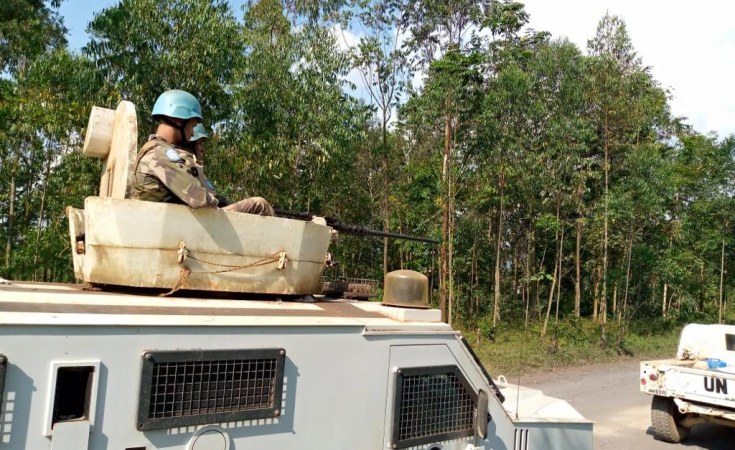Clashes broke out in Eastern Congo on Thursday between the military and M3 after the rebel group said that a ceasefire deal signed the previous day was "irrelevant."
"We are Congolese, not Rwandan," he said M23 spokesperson Willy Ngoma. "If there's a cease-fire, it can only be between us and the Congolese government."
The Democratic Republic of Congo and Rwanda agreed to a "de-escalation process" to curb the fighting and violence along their shared eastern border on Wednesday. The agreement included a withdrawal of M23 fighters from Congo.
"Only the M23 can sign the cease-fire with the government," Ngoma added.
New clashes broke out after Congolese groups attacked M23's position around Kanyabusoro, according to the spokesman. Residents in the area were forced to flee their homes.
Congo on Wednesday agreed to a six-goal plan for de-escalating violence, AFP reported. Other measures involved setting up a joint DRC-Rwanda committee.
A 'roadmap' to restore diplomatic ties
AFP specified some goals of the roadmap, with one of them being: "Defeat FDLR and its splinter groups which are at the origin of tensions between Rwanda and DRC and play a major role in the insecurity of the DRC in order to ensure that the threat to security ceases completely."
The Congolese presidency asked that the M23 cease hostilities under the roadmap, saying the "exploitation of natural resources in the region must be done in strict respect of the sovereignty of states," AFP reported as being another goal.
Tensions between DRC and Rwanda
Tensions especially flared in March 2022 in eastern DRC after M23 rebels, after a decade of relative calm, attacked Congolese army positions near the border between Uganda and Rwanda.
Congo saw people fleeing to its towns for safety, with the government in Kinshasa blaming Rwanda for aiding M23 rebels, a largely ethnic Tutsi group that accuses the Congolese government of not incorporating more fighters in the Congolese army as part of a 2009 agreement.
Tensions kept rising as M23 rebels kept up their offensive in weeks that followed, either encircling key cities like the provincial capital Goma or capturing strategic towns like Bunagana on the Congolese-Uganda border.
Rwanda has denied claims of aiding M23 rebels and has accused Congo's army of fighting alongside the FDLR, an armed group mainly comprised of ethnic Hutus who fled Rwanda after the 1994 genocide.
In May, Congo suspended RwandAir flights and summoned Rwanda's ambassador to express disapproval. At the end of May, Rwanda's foreign minister told reporters it would "not sit idly by" if attacks continued along the border.
At the end of June, the United Nations Security Council also released a statement and said that the alarming resurgence of armed groups was "threatening the security and stability of the eastern provinces of the Democratic Republic of Congo."
(AFP, AP)


